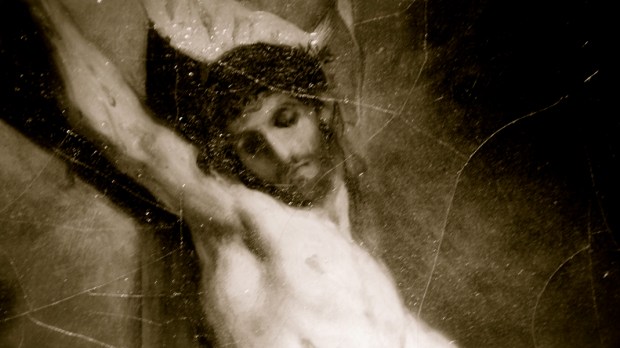Lenten Campaign 2025
This content is free of charge, as are all our articles.
Support us with a donation that is tax-deductible and enable us to continue to reach millions of readers.
We know that God is merciful. We know from Scripture that he is full of mercy when we turn to him, seek forgiveness, and ask for his grace to seek his way for our life.
But the phrase “hour of great mercy” may be less familiar.
The hour refers to 3:00 p.m., the hour when Our Lord died on the cross for our redemption. It was at 3:00 p.m. on Good Friday when Jesus poured out his last breath and said, “Father, into thy hands I commend my spirit.” Luke 23:46.
Jesus attached special significance to the hour in his numerous detailed messages to St. Faustina in the 1930s. He referred to it as “the hour of grace for the whole world.”
Through the young Polish nun, Jesus requested that we reflect on his suffering and death at the 3:00 hour, and call upon his mercy. He asks us to pray for his mercy upon others, with the Stations of the Cross when possible, adoration before the Blessed Sacrament, or just a brief stop into a church during the “hour of great mercy.”
“At three o’clock, implore My mercy, especially for sinners; and, if only for a brief moment, immerse yourself in My Passion, particularly in My abandonment at the moment of agony. This is the hour of great mercy. In this hour, I will refuse nothing to the soul that makes a request of Me in virtue of My Passion.” (Diary of St. Faustina, 1320)
“As often as you hear the clock strike the third hour, immerse yourself completely in My mercy, adoring and glorifying it; invoke its omnipotence for the whole world, and particularly for poor sinners; for at that moment mercy was opened wide for every soul. In this hour you can obtain everything for yourself and for others for the asking; it was the hour of grace for the whole world — mercy triumphed over justice.” (Diary, 1572)
“On Good Friday. At three o’clock, I saw the Lord Jesus, crucified, who looked at me and said, I THIRST. Then I saw two rays issue from His side, just as they appear in the image. I then felt in my soul the desire to save souls and empty myself for the sake of poor sinners. I offered myself, together with the dying Jesus, to the Eternal Father, for the salvation of the whole world. With Jesus, through Jesus and in Jesus is my communion with You, Eternal Father.” (Diary, 648)

Read more:
Is there a certain Divine Mercy image that is best?
“Try your best to make the Stations of the Cross in this hour, provided that your duties permit it; and if you are not able to make the Stations of the Cross, then at least step into the chapel for a moment and adore, in the Most Blessed Sacrament, My Heart, which is full of mercy; and should you be unable to step into the chapel, immerse yourself in prayer there where you happen to be, if only for a very brief instant.” (Diary 1572)
Our Lord also said to St. Faustina:
“Encourage souls to say the Chaplet which I have given you … Whoever will recite it will receive great mercy at the hour of death … When they say this chaplet in the presence of the dying, I will stand between my Father and the dying person, not as the Just Judge but as the Merciful Savior … Priests will recommend it to sinners as their last hope of salvation. Even if there were a sinner most hardened, if he were to recite this chaplet only once, he would receive grace from my infinite mercy. I desire to grant unimaginable graces to those souls who trust in My mercy … Through the Chaplet you will obtain everything, if what you ask for is compatible with My will.”
The Divine Mercy chaplet can be prayed at any time, of course, but is especially encouraged at 3:00.
Read more:
Why you should give the Divine Mercy Chaplet a try

